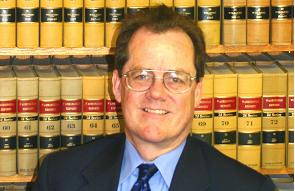Home Our Office Practice Areas Wills Living Trusts Probate Collections Evictions Contact Us Resources Just for Fun
PROBATE: QUESTIONS & ANSWERS
CONTENTS
What Is Probate?
When someone dies with or without a will, there are often matters of the deceased that need to be handled such as  transferring property which could include recording of deeds and completing tax forms. Probate is when the court supervises the process that transfers title of property from the estate of the person who has died called the decedent to their beneficiaries. Many people use the term probate simply with reference to any court matter concerning a will. Probate also pertains to affairs of estate planning such as the payment of taxes and debts, as well as any other expenses incurred, and distribution of assets. Normally, someone will have to fill out court forms and appear in court to prove that the will is valid, appoint a personal representation who has the authority to act on behalf of the decedent, identify and inventory the decedentís property and have it appraised, pay debts and taxes, and distribute the remaining property. transferring property which could include recording of deeds and completing tax forms. Probate is when the court supervises the process that transfers title of property from the estate of the person who has died called the decedent to their beneficiaries. Many people use the term probate simply with reference to any court matter concerning a will. Probate also pertains to affairs of estate planning such as the payment of taxes and debts, as well as any other expenses incurred, and distribution of assets. Normally, someone will have to fill out court forms and appear in court to prove that the will is valid, appoint a personal representation who has the authority to act on behalf of the decedent, identify and inventory the decedentís property and have it appraised, pay debts and taxes, and distribute the remaining property.
RETURN TO TOP
What is an Administrator, Executor or Personal Representative?
The person responsible for handling the affairs of the estate of the deceased may be referred to as an Administrator/Administratrix, Executor/Executrix, or Personal Representative. While there are some technical differences, the functions are the same Ė handling the affairs of the estate.
RETURN TO TOP
How Do You Transfer Property of the Deceased?
Transferring property when someone dies can be difficult. Probate is the process by which the court with the help of the personal representative determines who receives the property and assets of the deceased person and makes sure that those persons receive the property and assets. It is possible, but rare, that assets escheat or is given to the State of Washington. The Court approves the appointment of a personal representative who then has the authority to transfer property whether by a Bill of Sale or Deed.
RETURN TO TOP
What is a Will Contest?
Will contests are challenges to the way property is distributed under a will.
RETURN TO TOP
How Do Creditors Get Paid?
If someone who owes you money has died recently, you may have to file a creditorís claim in the probate in order to collect your money from the estate. There are strict time limits-usually four months to do this. You should act immediately if you have a claim against an estate.
In Washington, the law requires that a notice of the opening of the estate be given to the public through publication in a newspaper so that the decedentís creditors may make their claims. The personal representative must personally notify any of the known or who may be reasonable ascertained creditors of the estate. The personal representative is under a duty of due diligence in checking through the paperwork and effects of a deceased person to determine who is or who might be a creditor and who is thus entitled to actual notice of probate proceedings.
Notified creditors must file their claims during the claim period or else their claim will be barred. A simple estate will be open for a minimum of four months from the date the executor is appointed and notices are mailed to creditors. This period is required by law and is to give creditors an opportunity to file claims against the estate. Often, no claims are filed and the probate can be closed soon after this time period.
RETURN TO TOP
How Do You Start A Probate?
The process begins when a person dies. The person who passed away, known as the decedent, may or may not have left a will (or may have left more than one will or codicils to the will) If the decedent left a will, the decedent is then known as a testator. If there is a will, Washington law requires that the original will be filed with the Court of the county where the decedent died. If there is no will, the estate is known as an intestate estate and the law of the State of Washington will govern the disposition of estate assets.
In any case, a person wanting to open a probate will file a petition and other various probate papers with the court to open an estate. The Court will then appoint a Personal Representative to handle the affairs of the estate.
RETURN TO TOP
What Does the Personal Representative Do?
Notices must be sent to all heirs and legatees. Next, barring a will contest or formal proof of will, the named executor in a will or some interested party in the case of intestacy will be declared the personal representative of the estate by the probate court. The representativeís duties, in essence are quite simple and basically consist of collecting and preserving the assets of the estate, paying the debts and taxes, and distributing the remaining assets as directed by the intestacy statute or by the last will. As simple as this sounds the task may be daunting for large estates or persons not experienced with financial matters. A personal representative must keep track of the records of all transactions involving the estate as an accounting and inventory must be prepared to present either to the heirs or to the court depending on the manner of administration. Once the estate is open the court will issue Letters of Personal representative to the person appointed which with a death certificate will allow the representative to act on behalf of the estate.
RETURN TO TOP
Does the Estate Pay Taxes?
There are two types of death taxes that may be filed during the probate. There are Federal Estate Tax issues and Washington Inheritance tax issues. Both tax returns are due and the taxes to be paid within nine months from the date of death. These returns must be filed if the entire estate has assets in excess of a statutory amount.
In addition, an estate must file a final income tax return for the deceased for the final year of that personís life. That return is due on April 15 of every year. Finally, the estate may have to file an income tax return for the income generated by the probate assets .
RETURN TO TOP
When Can the Estate Be Closed?
After all claims including taxes are paid, the inventory and accounting are completed, the representative can distribute the assets of the estate as per the will, collect receipts from those personís receiving shares of the estate and close the estate.
RETURN TO TOP
How Long Will the Probate Take?
The process can take from six months to many years depending on the size and complexity of the estate. The vast majority of probates are completed in nine (9) to twelve (12) months.
RETURN TO TOP
Problems with Probate?
The most common problems encountered in probate arise when family members do not get along and attempt to bring other family troubles into the already complex realm of probate If the family decide to cooperate, probate can be a painless process. Since the process usually takes place shortly after the passing of a loved one, small matters can lead to conflict between family members, usually resulting from disputes over who gets what. Delays over small matters pertaining to the reasonable distribution of assets can be upsetting. This makes having a clear and definitive will a necessity and as such, makes estate planning a very important step on the process. With effective estate planning very few concerns are unaddressed and left unresolved.
There may be a will contest or challenge. There may be a need to recover estate property being held by a relative or to recover possession to a family home from a relative living there. There may be claims against the estate that are disputed.
In some cases the person charged with administration of the estate may be less than truthful with the estate. Then a proceeding to remove the personal representative may be started.
RETURN TO TOP
We have represented clients throughout South King County and more specifically Auburn, Maple Valley, Kent, Des Moines, SeaTac, Federal Way, Renton, Tukwila, and Burien.
To make an appointment, please call 425-277-0977 or click here for an Appointment.
Law Offices of David P. Tracy
108 Wells Ave. S.
Renton, Washington 98057
425-277-0977 Fax 425 277-4749
Home Our Office Practice Areas Wills Living Trusts Probate Collections Evictions Contact Us Resources Just for Fun
|




 transferring property which could include recording of deeds and completing tax forms. Probate is when the court supervises the process that transfers title of property from the estate of the person who has died called the decedent to their beneficiaries. Many people use the term probate simply with reference to any court matter concerning a will. Probate also pertains to affairs of estate planning such as the payment of taxes and debts, as well as any other expenses incurred, and distribution of assets. Normally, someone will have to fill out court forms and appear in court to prove that the will is valid, appoint a personal representation who has the authority to act on behalf of the decedent, identify and inventory the decedentís property and have it appraised, pay debts and taxes, and distribute the remaining property.
transferring property which could include recording of deeds and completing tax forms. Probate is when the court supervises the process that transfers title of property from the estate of the person who has died called the decedent to their beneficiaries. Many people use the term probate simply with reference to any court matter concerning a will. Probate also pertains to affairs of estate planning such as the payment of taxes and debts, as well as any other expenses incurred, and distribution of assets. Normally, someone will have to fill out court forms and appear in court to prove that the will is valid, appoint a personal representation who has the authority to act on behalf of the decedent, identify and inventory the decedentís property and have it appraised, pay debts and taxes, and distribute the remaining property.